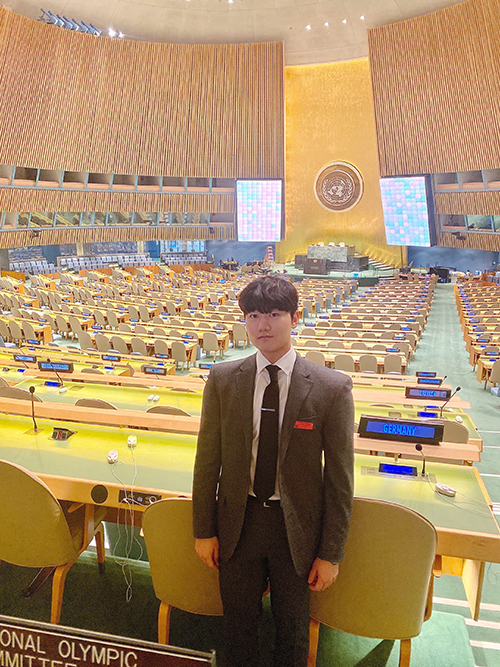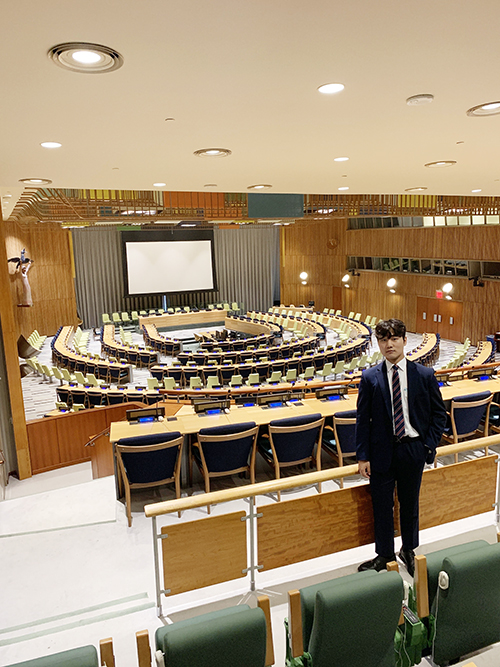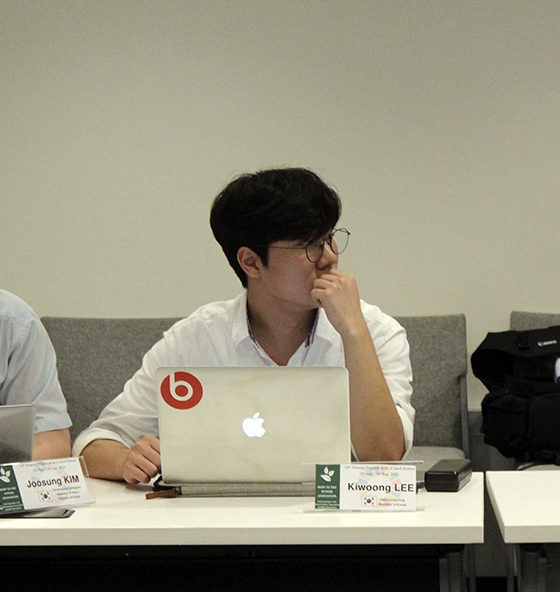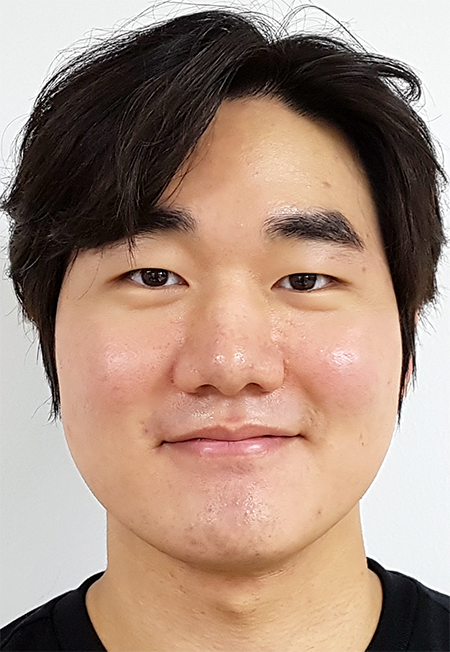
As a member of the NGO “Hope to the Future,” I had an opportunity to visit the United Nations New York headquarters in January of 2020. Even before the start of the tour, my heart pounded, and I was more than excited to meet the ambassadors working at the United Nations.
The Hope to the Future in New York program started with a brief tour of the headquarters. After the tour, I was directed to a conference room to audit speaker panel sessions hosted by people working at the United Nations. As my interest primarily lied in nuclear issues covered by the United Nations Office for Disarmament Affairs (UNODA), I was looking most forward to the Korean panelist JunhyungYoo in the UNODA division.

The UNODA speaker panel session started with a brief introduction of the division. The UNODA provides substantial and organized support for establishing norms in the disarmament sector through the work of the General Assembly, the Disarmament Commission, the Conference on Disarmament, and other organizations. It was originally established in 1982 at the recommendation of the Second Special Conference on Disarmament (SSOD II). After the brief overview of the UNODA and its brief came a Q&A session where the participants had a chance to ask the panelist, Junhyung Yoo, questions about the UNODA and the work he does in the division.
“Is possessing nuclear weapons a violation of Customary International Law and a threat to the international community?” Angela Sujin Kim, a student asked during the session. He answered that the UNODA does not question the legality of nuclear weapons, but rather promotes disarmament of all forms of weaponry because such weapons are a definite threat to society today. He also added that the Nuclear Non-proliferation Treaty does not apply to all states as a matter of Customary International Law because there is no law that specifically binds every state in the world to nuclear disarmament.

His comment was impressive and afterward there was a group discussion about it, which was later summarized into a report. In this report I was strongly touched by the comment written by one of the members of the group, Angela Sujin Kim that the international community could be a better place if peace and security coexisted and nuclear weapons were never used as a form of hard power. Of course, there is no easy resolution when it comes to weapons and related diplomacy. Even though we all know that weapons are dangerous, it takes much more than simply understanding and communication to reach an agreement among the involved countries to reduce the number of weapons in the global community.
Through the Hope to the Future program in the New York, I became interested in a new area: the United Nations Children’s Fund (UNICEF). My interest in UNICEF was sparked after auditing an enlightening speech by Ms. Shannon O’Shea, a programme specialist for UNICEF. Through her session, I learned that the Convention on the Rights of the Child and the Sustainable Development Goals (SDGs) are inextricably linked, which means that children’s rights and climate change are related as well. Ms. O’Shea told us how UNICEF was carrying out specific programs related to climate-sensitive health issues, education, and disaster risk reduction for children. She emphasized the importance of improving the collection, analysis, and use of relevant data to promote a more efficient decision-making process within UNICEF. I was most impressed with Ms. O’Shea during the Q&A session. During this session, she told us how refugees should be seen as assets, not threats, and how UNICEF needs to inform and empower parents, as well as help children achieve and improve their lives. It was incredibly enlightening for me to think about refugees as an asset instead of a burden.
This opportunity was an important event in my life. Before I visited the United Nations New York headquarters, I used to have a broad yet shallow interest in the UN and related social issues. However, after being exposed to various departments in the UN, I now truly understand the complexity of the global community and have become more interested in thinking about social issues in from a more bureaucratic perspective.

James Kiwoong lee
Senior (Grade 12)
The Learning Community International School

